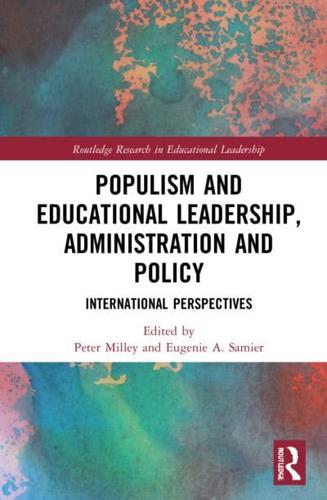Publisher's Synopsis
This book explores the theoretical and practical implications of a global resurgence of populism on educational leadership. Drawing together a wide range of international authors, it examines how socio-cultural and political populist developments affect educational policies, organisations, and administration around the world.
The collection addresses the forms and meanings of populism and examines their influence on education systems and institutions. It includes theoretical perspectives and rich examples from Australia, Brazil, Canada, Finland, France, Hungary, Nicaragua, the UK, and the US, exploring the complex influences and effects of populism on education policy, politics, and institutions in these countries. These include attacks on initiatives promoting equity and inclusion, the repression of academic freedom, the erosion of institutional autonomy from partisan political direction, and the suppression of evidence and expertise in policy and curriculum development.
With its international and multidisciplinary outlook, this book will be highly relevant reading for researchers, scholars, and students in the fields of educational leadership and administration, higher education, and education policy, as well as those interested in the contemporary manifestations of populism on education.











